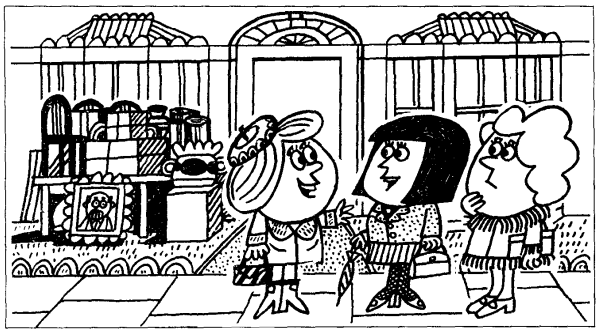one|Lesson 91~100
Lesson 91~92
✨课文

✨单词
⚡本课重点
本节课要学习的是 will/shall+V. 结构的一般将来时。在之前的37~38课中学习了 be+going to+V. 结构的一般将来时
一般将来时:动作发生的时间是「将来」,动作没有具体的状态(零状态)。表示打算、将来要做的事情或将要发生的事情,常与表示将来意义的时间状语连用
注意,其中的will可用于所有人称,而shall只能用于第一人称I和we
肯定句:
主语+will/shall+V.+其他e.g. I'll miss you.、I shall answer the phone.、Tom will be late.
否定句:直接在
will或shall的后面加上not即可。主语+will/shall+not+V.+其他e.g. I won't miss you.、I shan't answer the phone.、They won't get married.
一般疑问句:只需将
will或shall提到句首(主语前面)即可。Will/Shall+主语+V.+其他e.g. Will you miss me?、Shall I answer the phone?
特殊疑问句:在一般疑问句的句首加上特殊疑问词并去掉答案。
特殊疑问词+will/shall+主语+V.+其他e.g. I'll miss you. => Will you miss me? => Who will you miss?
先把陈述句中的
will提到句首,并进行人称调整以符合语义,从而得到一般疑问句,再用who对一般疑问句中的答案me进行提问,并将who提到句首
但注意,will不用来表示事先安排好或决定做的事情
person和people:都表示「人」
person是单数形式,He is a person.people是复数形式,They are people.
Lesson 93~94
✨课文

✨单词
⚡本课重点
before last:上一个
- e.g. the week before last => 前一周
after next:下一个
- e.g. the year after next => 后年
Lesson 95~96
✨课文

✨单词
had better
⚡本课重点
had better:表示「最好、最好还是」,常用来表达某种忠告或建议,用在现在时或将来时中,后面跟动词原形
这里的had并非表示过去时态,而是英语的一种语言习惯,是一种固定搭配用法
肯定句:
主语+had better+V.+其他e.g. You'd better sleep.
否定句:直接在
had better的后面加上not即可。主语+had better+not+V.+其他e.g. You'd better not do that.
in xxx time:表示「在...之后」。单数时用's,复数时用s'。后面的time可以省略
- e.g. in an hour's time、in three days' time、in two weeks' time
plenty of:表示「大量」,后面可以跟可数和不可数名词,只能用于肯定句
- e.g. We've got plenty of time.
Lesson 97~98
✨课文

✨单词
⚡本课重点
belong to sb:表示「属于某人」,第三人称单数的时候belong后面加s,复数时不用加
- e.g. This is my book. => This book belongs to me.
- e.g. These are our letters. => They belong to us.
Lesson 99~100
✨课文

✨单词
⚡本课重点
宾语从句:参考之前的75~76课
直接引语:把别人的原话加上引号进行复述
- e.g. The doctor says, 'I will come at once.'
间接引语:把别人的原话进行人称转换后再说一遍,大白话就是「用自己的话来转述别人说的话」。间接引语其实就是宾语从句,它的动词与主句中的主要动词在时态上必须保持一致
- e.g. The doctor says that he will come at once.
直接引语变间接引语的步骤
- ①去掉引号
- ②转换人称
- ③添加引导词
that
help sb. (to) do sth.:帮某人做某事
offer help to sb.:给某人提供帮助
provide help to sb.:给某人提供(免费的)帮助